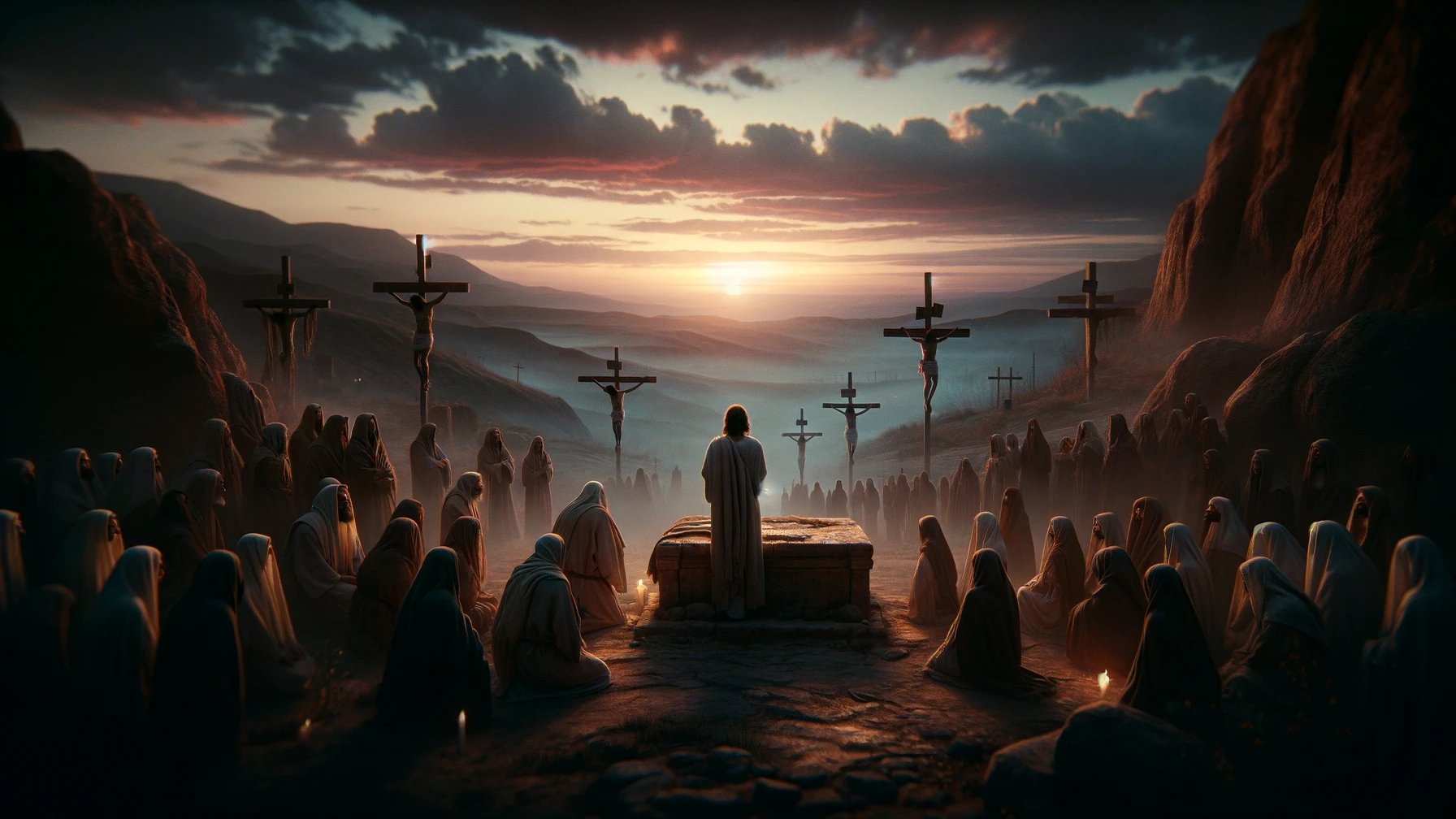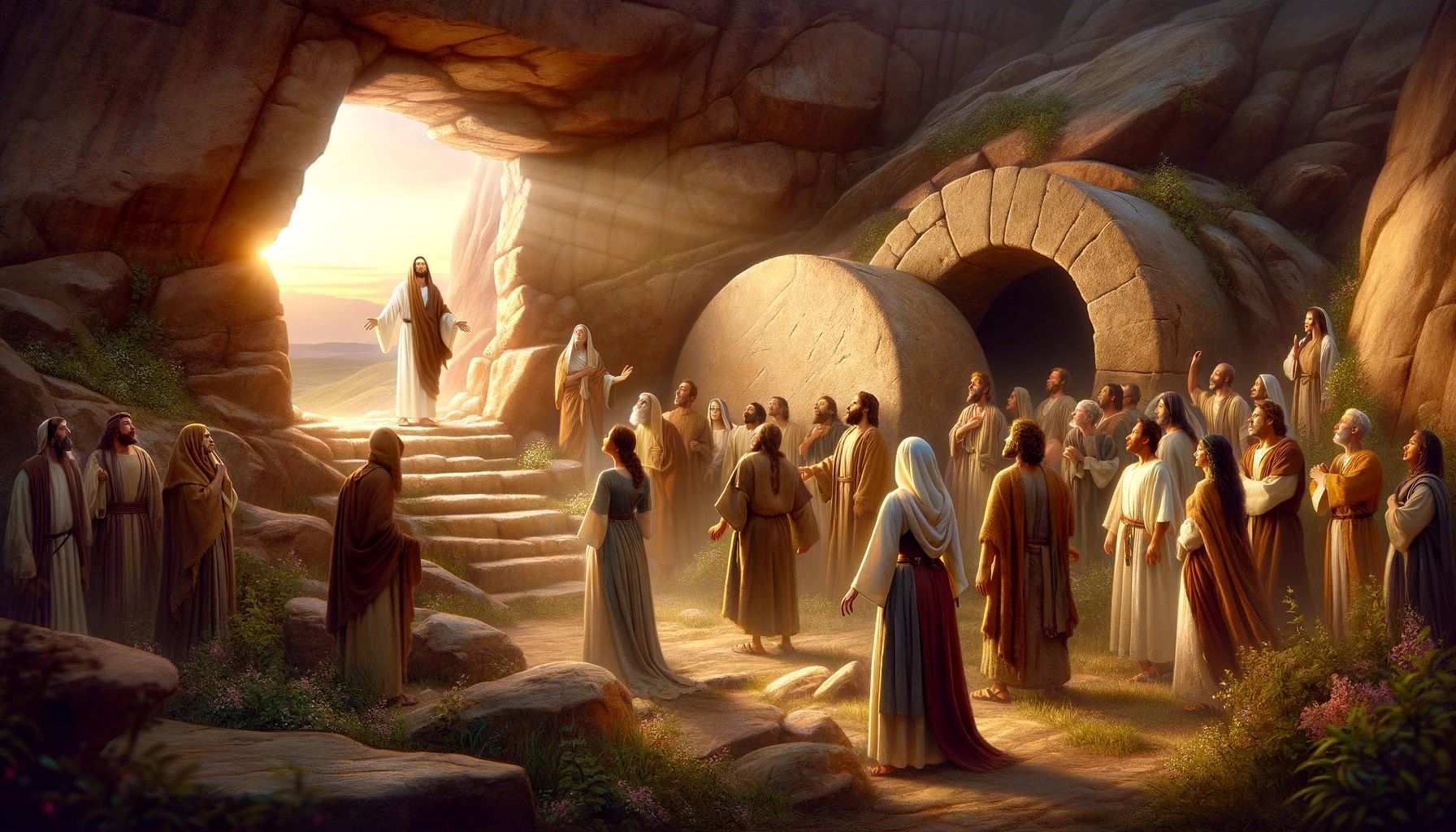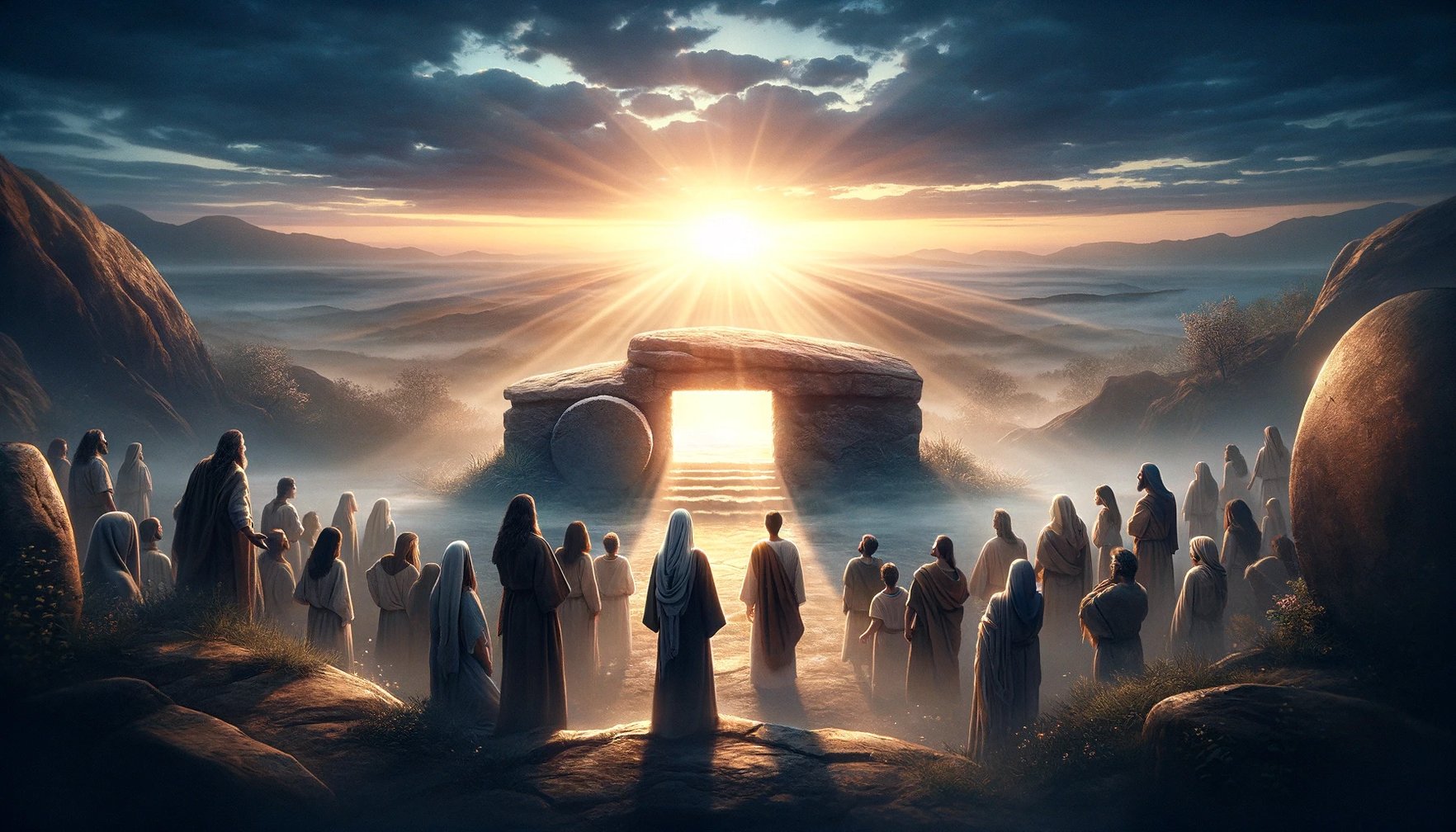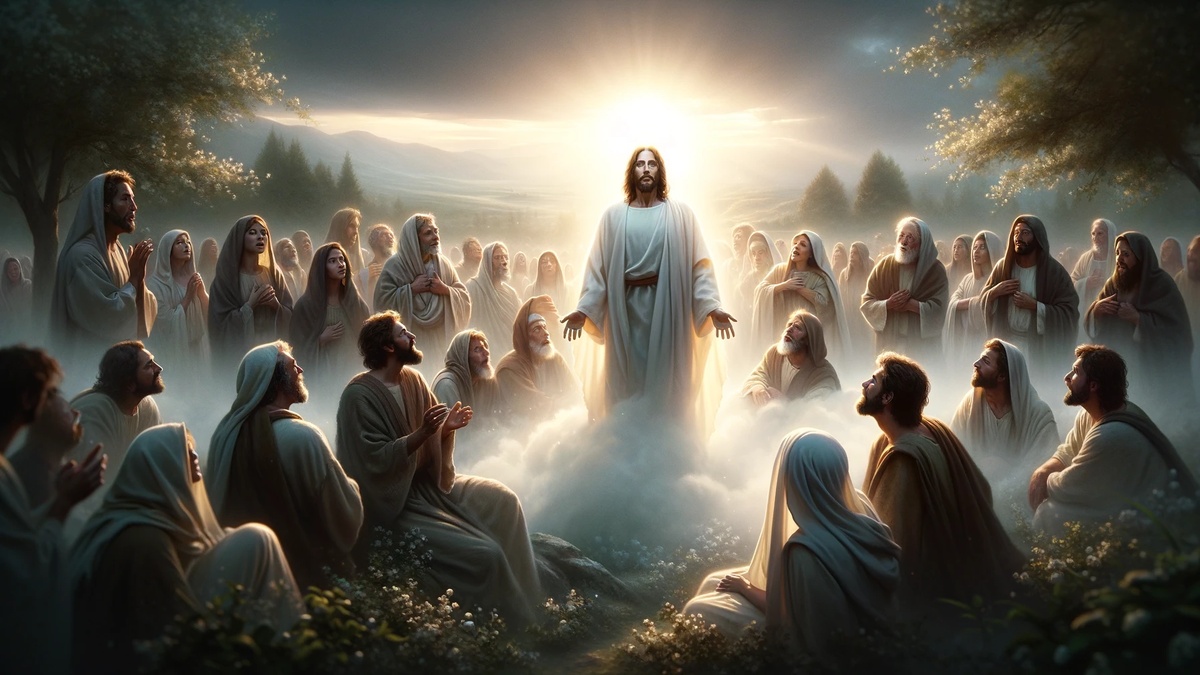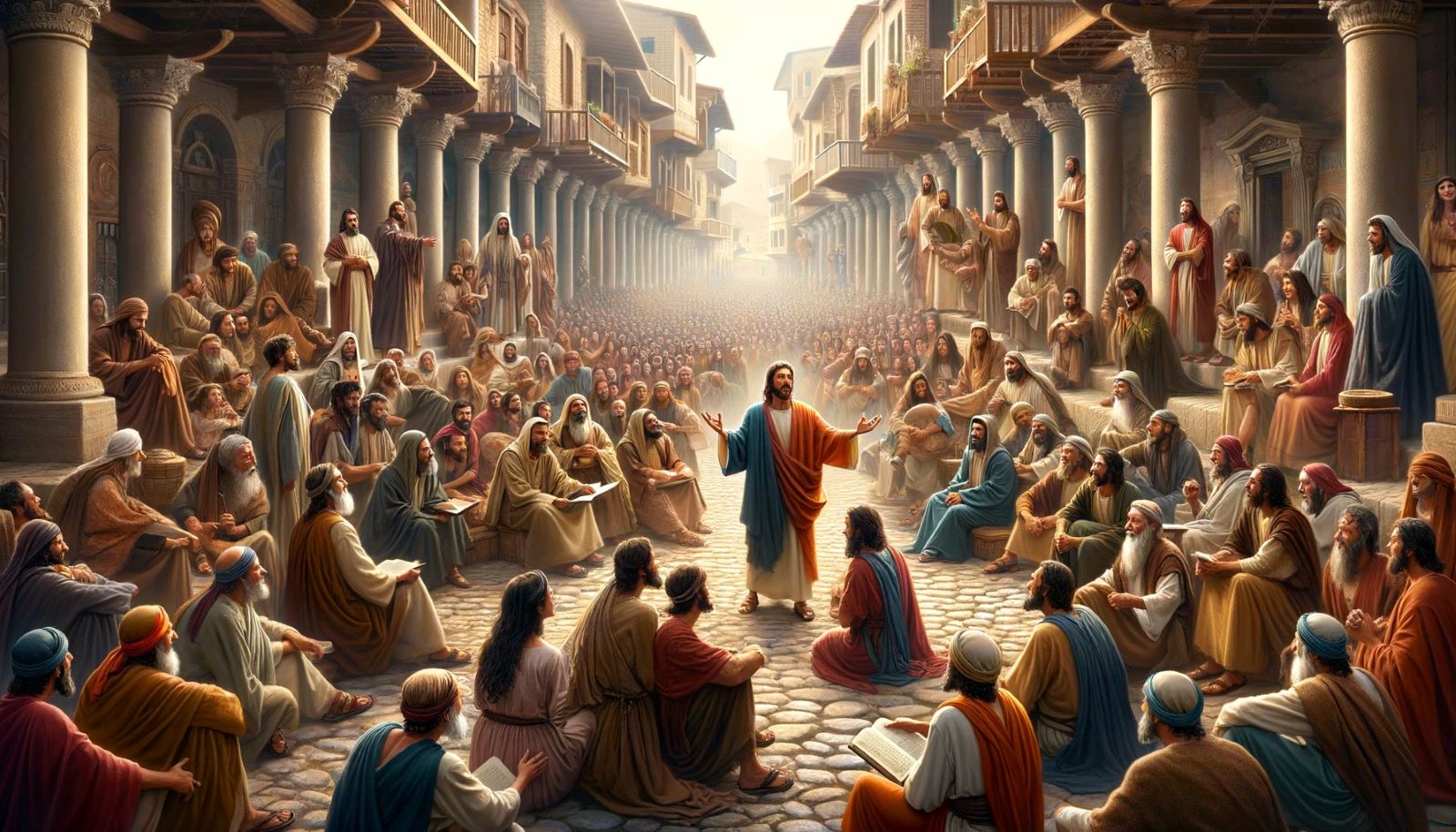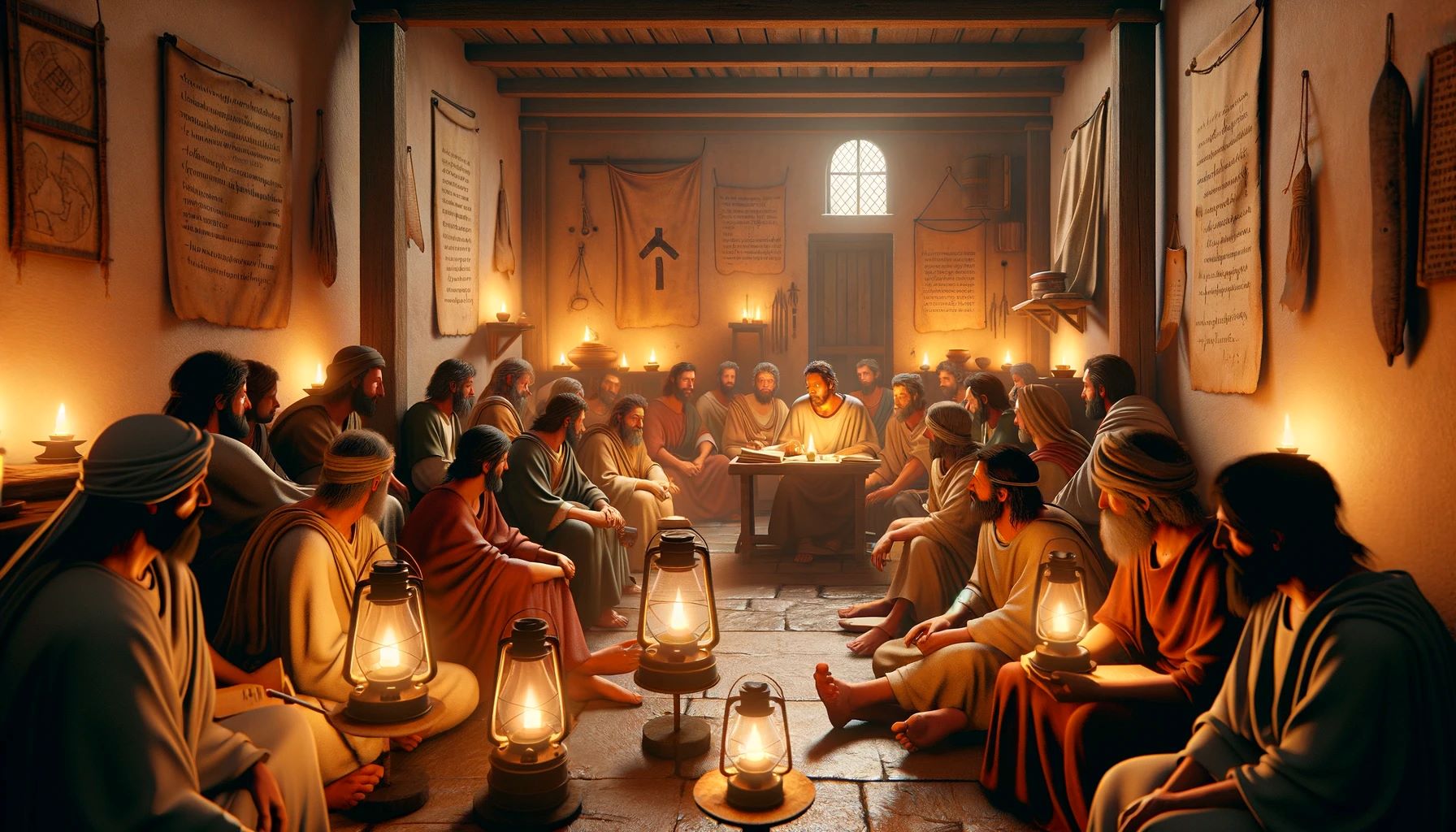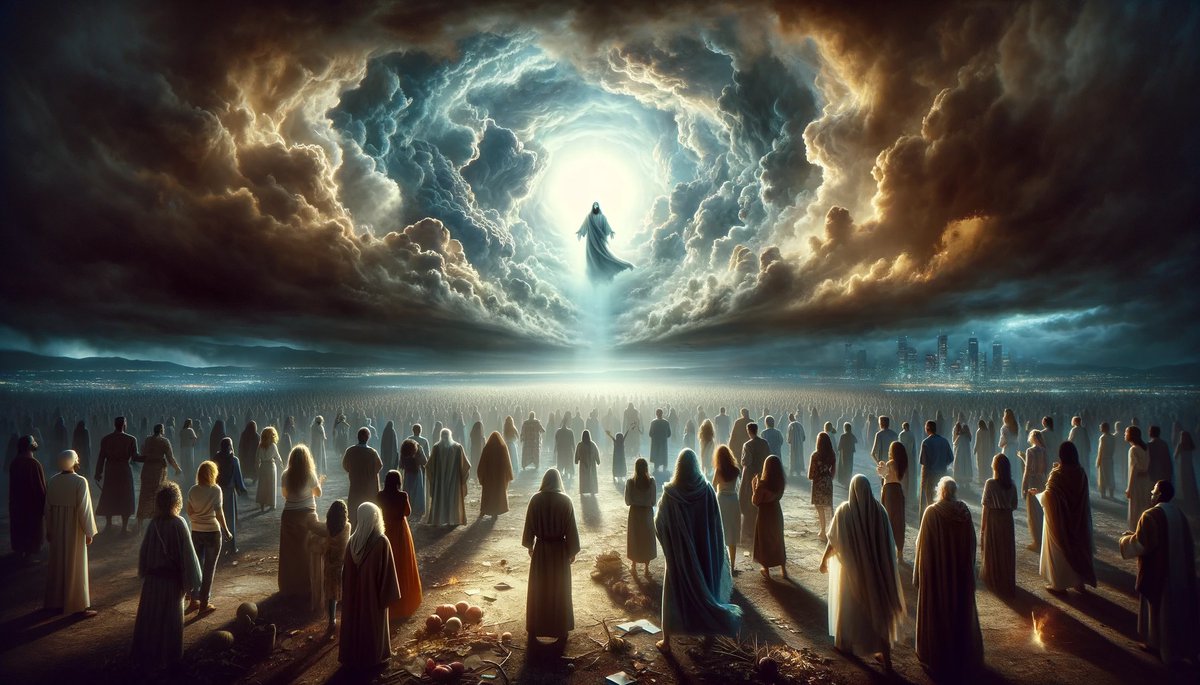Home>Christian Videos>Bible Stories>What Happened To Jesus Christ After He Was Resurrected
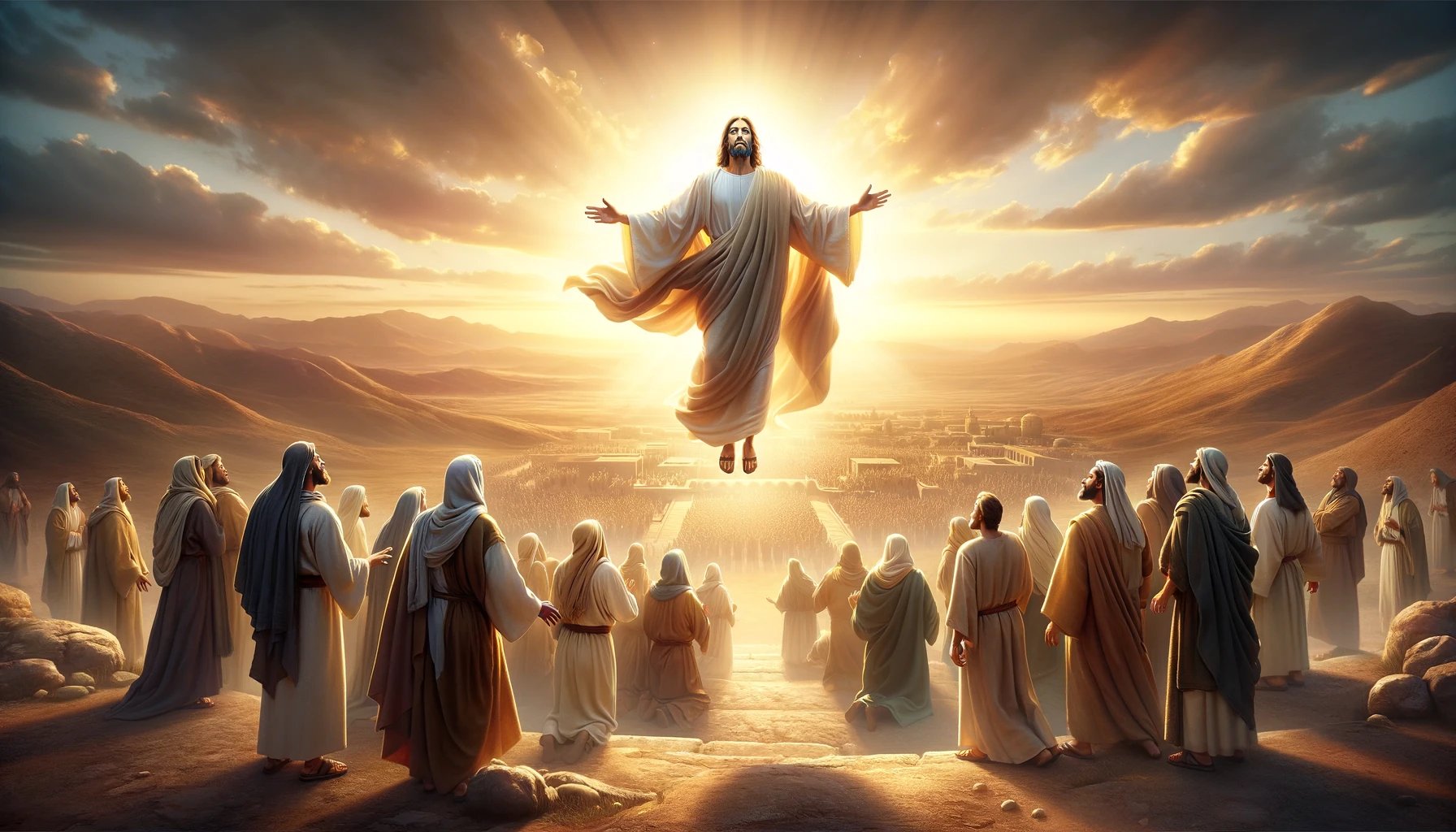

Bible Stories
What Happened To Jesus Christ After He Was Resurrected
Published: March 1, 2024
Ericka Andersen, an editor at Christian.net, expertly merges digital strategy with content creation, focusing on faith and societal issues. Her communication skills enhance the platform's engaging narratives, fostering meaningful dialogue on belief's impact on society.
Discover what happened to Jesus Christ after his resurrection in this compelling Bible story. Uncover the powerful events that followed his miraculous return to life. Explore the significance of this pivotal moment in Christian history.
(Many of the links in this article redirect to a specific reviewed product. Your purchase of these products through affiliate links helps to generate commission for Christian.net, at no extra cost. Learn more)
Table of Contents
The Ascension of Jesus
The Ascension of Jesus is a significant event in Christian theology, marking the departure of Jesus from Earth into the presence of God. According to the New Testament, this event took place 40 days after Jesus' resurrection. The Ascension is described in the books of Luke and Acts, where Jesus is taken up from the Mount of Olives in the presence of his disciples. This event is of great importance to Christians as it signifies the completion of Jesus' earthly ministry and the beginning of his heavenly ministry.
The Ascension of Jesus holds several key theological implications for Christians. It signifies Jesus' exaltation and enthronement at the right hand of God, demonstrating his divine authority and sovereignty over all creation. Additionally, it serves as a source of hope for believers, as it represents the promise of Jesus' eventual return. This event also emphasizes the continuity of Jesus' presence with his followers through the outpouring of the Holy Spirit, which occurred on the day of Pentecost following the Ascension.
The Ascension of Jesus also carries practical significance for the Christian faith. It serves as a reminder of the mission and purpose of the Church, as Jesus commissions his disciples to continue his work and spread the message of salvation to all nations. This commission, known as the Great Commission, is a central aspect of Christian ministry and evangelism, emphasizing the universal scope of the gospel message.
In summary, the Ascension of Jesus is a pivotal event in Christian belief, signifying Jesus' exaltation, the promise of his return, and the commissioning of his followers to continue his work. This event holds both theological and practical significance, shaping the beliefs and mission of the Christian faith.
Jesus' Appearances to His Disciples
-
Resurrection Appearances: Following his resurrection, Jesus made several appearances to his disciples, providing them with undeniable proof of his victory over death. These encounters served to strengthen the faith of the disciples and solidify their understanding of Jesus' divine nature.
-
Encounters in the Upper Room: One of the most well-known appearances occurred in the Upper Room, where the disciples had gathered in fear and uncertainty. Jesus appeared among them, offering words of peace and reassurance. He also showed them his wounds, dispelling any doubts about his identity.
-
On the Road to Emmaus: Another significant appearance took place on the road to Emmaus, where two of Jesus' followers encountered him. Initially unaware of his identity, they were amazed as Jesus revealed himself to them through the breaking of bread, leading to a profound moment of recognition and understanding.
-
By the Sea of Galilee: Jesus also appeared to his disciples by the Sea of Galilee, where he performed a miraculous catch of fish and shared a meal with them. This encounter reaffirmed the disciples' relationship with Jesus and reinforced his ongoing presence in their lives.
-
Doubting Thomas: One of the most compelling appearances was to Thomas, who initially doubted the reports of Jesus' resurrection. Jesus appeared to him, inviting Thomas to touch his wounds, resulting in a powerful declaration of faith from Thomas.
-
Commissioning and Teaching: In addition to these appearances, Jesus used these encounters to commission his disciples for the work that lay ahead. He provided them with teachings and instructions, preparing them for their role in spreading the gospel and establishing the early Christian community.
-
The Significance: These appearances of Jesus to his disciples served as a source of encouragement, affirmation, and empowerment. They transformed the fearful and disheartened disciples into bold and devoted messengers of the gospel, laying the foundation for the growth and spread of Christianity.
In summary, Jesus' appearances to his disciples following his resurrection were pivotal in solidifying their faith, dispelling doubts, and commissioning them for the task of spreading the message of salvation. These encounters served as a powerful testimony to the reality of Jesus' victory over death and the establishment of a new era in the history of humanity.
The Great Commission
The Great Commission refers to the instructions given by Jesus to his disciples, as recorded in the Gospel of Matthew. This pivotal moment took place on a mountain in Galilee, where Jesus commissioned his followers to go and make disciples of all nations, baptizing them in the name of the Father, the Son, and the Holy Spirit, and teaching them to obey everything he had commanded. This charge from Jesus represents a foundational aspect of Christian mission and evangelism, emphasizing the universal scope of the gospel message and the responsibility of believers to share the good news with the world.
The Great Commission embodies the essence of Christian outreach and discipleship, calling upon believers to actively engage in the spread of the gospel. It underscores the inclusive nature of God's redemptive plan, extending salvation to people of all nations and backgrounds. This commission serves as a call to action for Christians, compelling them to share the message of hope and reconciliation with others, regardless of cultural or geographical boundaries.
Furthermore, the Great Commission highlights the triune nature of God, emphasizing the significance of the Father, the Son, and the Holy Spirit in the work of redemption and reconciliation. It underscores the role of baptism as a symbol of initiation into the Christian faith and the importance of teaching new disciples to follow the teachings of Jesus. This comprehensive mandate encompasses not only the proclamation of the gospel but also the nurturing and equipping of new believers for a life of faith and discipleship.
The Great Commission also reflects the divine authority and empowerment bestowed upon believers by Jesus. It signifies the ongoing presence of Christ with his followers as they engage in the mission of making disciples. This commissioning by Jesus serves as a source of inspiration and motivation for Christians, reminding them of their vital role in advancing the kingdom of God and participating in the transformation of lives through the power of the gospel.
In essence, the Great Commission stands as a foundational directive for the Christian faith, compelling believers to embrace their role as ambassadors of Christ and heralds of the gospel. It encapsulates the universal reach of God's redemptive love and the transformative impact of the message of salvation. This commission continues to shape the mission and identity of the Church, driving believers to actively participate in the fulfillment of Jesus' command to make disciples of all nations.
Jesus' Return to Heaven
Following his resurrection and a series of appearances to his disciples, Jesus ascended to heaven in the presence of his followers. This event, known as the Ascension, holds profound significance in Christian theology and marks the culmination of Jesus' earthly ministry. The account of Jesus' return to heaven is documented in the New Testament, particularly in the books of Luke and Acts, providing a foundational narrative for the Christian faith.
The return of Jesus to heaven serves as a testament to his divine nature and exaltation. As he ascended from the Mount of Olives, Jesus demonstrated his victory over death and his ultimate authority as the Son of God. This event affirmed the fulfillment of God's redemptive plan and the establishment of Jesus' reign over all creation, symbolizing his enthronement at the right hand of the Father.
Moreover, Jesus' return to heaven signifies the continuation of his ministry in the heavenly realm. As the ascended Lord, Jesus intercedes on behalf of believers and exercises his role as the mediator between God and humanity. This ongoing ministry of Jesus provides assurance to Christians, knowing that they have a high priest who empathizes with their weaknesses and advocates for them before the Father.
The ascension of Jesus also paved the way for the outpouring of the Holy Spirit, as promised by Jesus before his departure. The coming of the Holy Spirit on the day of Pentecost marked the beginning of a new era in the life of the Church, empowering believers for the mission and ministry entrusted to them. The ascension, therefore, serves as a precursor to the indwelling and empowering presence of the Holy Spirit in the lives of believers.
Furthermore, Jesus' return to heaven holds eschatological significance, pointing to the promise of his eventual return. The New Testament affirms the expectation of Jesus' second coming, where he will return in glory to judge the living and the dead. The ascension serves as a reminder of this future hope, urging believers to live in anticipation of the fulfillment of God's redemptive purposes and the consummation of all things in Christ.
In summary, Jesus' return to heaven following his resurrection and appearances to his disciples holds multifaceted theological implications for the Christian faith. It signifies his exaltation, ongoing ministry, the outpouring of the Holy Spirit, and the anticipation of his second coming. This event stands as a foundational tenet of Christian belief, shaping the understanding of Jesus' present and future role in the redemption of humanity.
